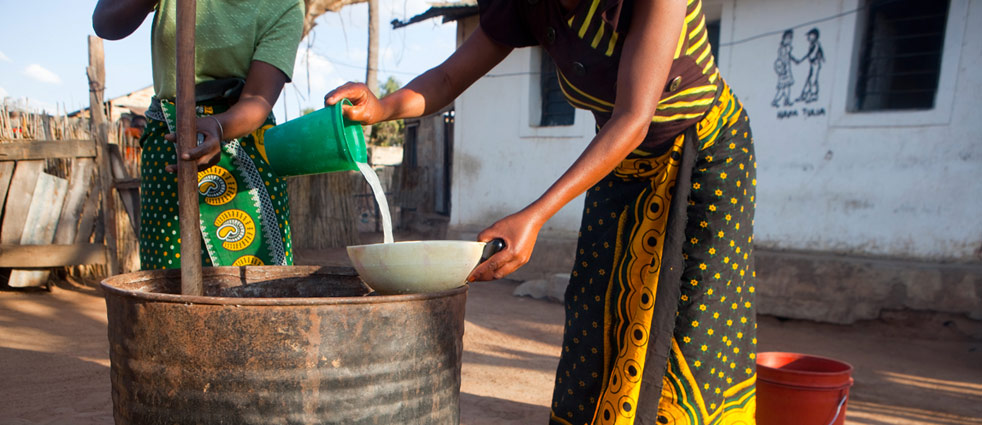
Better financial management on demand
November 19th, 2012
Counterpart-driven, performance-based capacity building tool empowers countries to identify and resolve financial management bottlenecks in national NTD programs
While money may make the world go round, strong financial management skills keep it spinning on track. In fact, the success or failure of a program often hinges largely on the strength of its financial management system.
This is certainly true in the case of national NTD control programs, where sound financial management systems are vital for a multitude of activities related to program oversight: ensuring information transparency, tracking expenses, standardizing procedures and processes, monitoring program resources, establishing proper controls to enable more efficient operations, and achieving greater financial integrity to improve the NTD program impact.
In June 2012, Deloitte piloted a capacity building assessment workshop to help program managers and ministry officials analyze their financial management processes and systems, define gaps in performance, and identify areas for improvement. Through an interactive stakeholder workshop, Deloitte worked collaboratively with the Ghana Health Services’ NTD Country Program (GHS/NTDCP), helping staff move through a customized capacity building assessment framework, called a “Maturity Model.”
Deloitte’s Maturity Model helps organizations initiate a continuous process of self-reflection, diagnostics and planning. As part of this process, staff develop:
- A shared future vision of the organization and defined organizational performance targets for the next 6 months (i.e. Where do we want to be?)
- Baseline measures of the organization’s current capacity across elements of sustainability and performance (i.e. What is standing in the way of us getting there?)
- A roadmap to meet the performance targets. (i.e. How do we overcome barriers to get closer to our performance targets?)
Combined, these steps engender stakeholder buy-in, collective thinking on the strengths and weaknesses of an organization’s financial management system, and a shared vision for how the organization will overcome the weaknesses to achieve agreed-upon performance targets.
The assessment tool moves beyond “yes/no” type questions and gauges an organization’s ability to have impact, as measured by its self-defined performance targets.
“The workshop does not train people in financial management,” said Kimberly Switlick-Prose, Deloitte Emerging Markets Manager at END in Africa, which developed the Maturity Model. “Rather, it strengthens financial management performance by helping government agencies first define a collective vision and then identify specific ways to achieve that vision through a methodical process of improvements in the financial management arena.”
Switlick-Prose continued, “Unlike traditional capacity-building activities that deliver a standard curriculum developed by expert trainers, this exercise is innovative in that it is purely demand-driven. The country and the participants themselves get to decide the direction of the workshop and define the areas targeted for process improvement and capacity building, which increases buy-in, participation, and ownership.”
The comments from workshop participants showed that they agreed with this assessment. They said that, “working together to identify challenges and bottlenecks to achieving performance targets,” “setting performance targets together,” and “developing a detailed action plan” that “prioritizes problems under relevant [capacity maturity] domains,” were among the skill sets that were strengthened during the exercise.
The END in Africa project continues to work with the GHS and NTDCP to help them execute the work plan that was defined during the exercise, which will help them get closer to meeting their performance targets.
The END in Africa program expects the benefits of the capacity building exercise to extend well beyond simply improving financial accountability, transparency and management in the Ghana NTD program. It also expects the exercise to contribute to the END program’s overall sustainability (by generating cost and operational efficacies for both financial management and country NTD program management) and to reduce in-country NTD program fragmentation.
The program plans to hold a follow-up workshop in Ghana in 6 months, and to expand the capacity-building exercise to the other END in Africa countries, namely Burkina Faso, Niger, Sierra Leone and Togo. The participants in the June workshop are already on board with these plans. “In all, the training program is laudable and needs to be organized again to refresh the minds of the participants,” said one. Another agreed, “it [the capacity building exercise] must be continuous, perhaps held every year.”
Workshop participants also commented on another, unanticipated benefit of the exercise—its success in strengthening teamwork and its potential to foster collaboration across agencies and departments, and among the local, regional and national levels of government. The words of one participant sums up the group consensus: “the exercise is needed for all levels of GHS program implementation in Ghana, to strengthen capacities of officers in the regions and districts.”
Read more:
- Outline of capacity building exercise (CBE) (Doc 117Kb)
- Summary of Ghana CBE results (PDF 200Kb)
- Evaluations from Financial Management CBE (Doc 25Kb)
- Ghana NTD program maturity model
- NTDCP Maturity model (Xls 70Kb)
- NTDCP FMIS Work Plan (Xls 20Kb)
- Workshop methodology and post-workshop assessment (PDF 1.2Mb)

